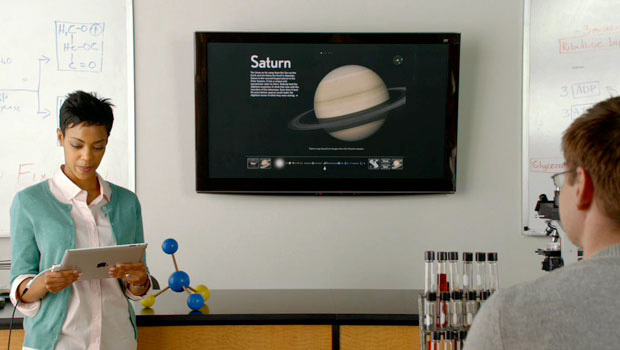Apple's senior VP of Software Engineering, Craig Federighi, promoted the company's participation in Code.org's annual Hour of Code events in a Monday interview, while downplaying suggestions that school spending on technology hasn't provided any meaningful advantages over regular education.
"These devices are so much a part of our lives, we have a computer in some form wherever we go, that the ability to create in that medium is as fundamental as the ability to write," Federighi toldthe BBC. Apple Stores will host a free hour-long programming class for kids on Dec. 10, as well as six related events running today through Dec. 12.
The executive added that he first tried coding when he was 10, and that programming should be considered the "next level of literacy." He also tried to dispel stereotypes about the field, calling it "among the most creative, expressive and social careers."
Notably, he indicated that he'd like Apple Stores to be used for training and education more frequently. The company does host regular workshops for customers and summer camps for kids, but these don't involve programming or other advanced skills.
The BBC raised the issue of complaints about school spending on technology, noting that the OECD (Organization for Economic Co-Operation and Development) found no direct link between billions spent on computers and other hardware and improvements in learning. Apple has long sold computers to school districts, and is currently making a strong push to get iPads into classrooms.
"There's no question in my mind of the value in technology in fueling young minds," Federighi said. "Like any other tool, if you simply throw it in the classroom, and don't consider how best to take advantage of that tool, and you try the old ways with a new piece of technology on the desk, it's no panacea. But the potential of the technology when well applied is phenomenal."
 Roger Fingas
Roger Fingas








 Charles Martin
Charles Martin

 Malcolm Owen
Malcolm Owen
 William Gallagher
William Gallagher

 Christine McKee
Christine McKee
 Wesley Hilliard
Wesley Hilliard









6 Comments
Given the amount of money at stake and the limited amount of that stuff all Western governments seem to have at that moment, it's not good enough to just reject such findings out of hand. You need to provide evidence to the contrary. Some Chinese schools are significantly outperforming most in the west and they manage that without vast deployment of high-tech learning aids. You would likely get a far better result spending the money on improving teachers salaries and doing more to make education a more attractive career for bright people.
I'm highly suspicious of what exactly the studies were measuring when they concluded that technology (spending) had no impact on "learning." I think technology, particularly coding, teaches kids to think abstractly.
programmer and technologist Clifford Stoll makes some compelling arguments against computers in the classroom. primarily cost, turning educators into tech support workers, and diluting learning into entertainment. his stance is the hard way is the only way, and there are no shortcuts.
worth a read:
http://www.amazon.com/High-Tech-Heretic-Reflections-Contrarian/dp/0385489757